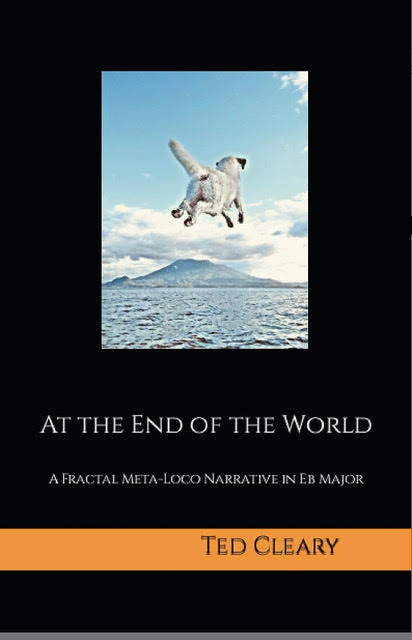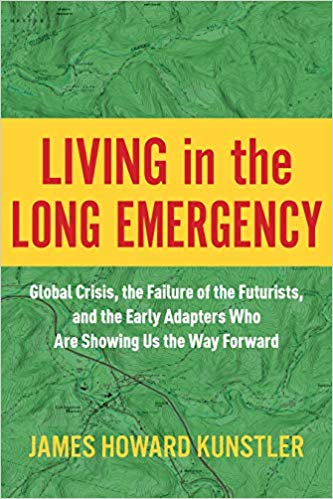The Fifty Dollar Club
1976
Christmastime, 1975, in Washington DC, was for me an archetypal passage of youthful desperation I was living in a great big dorm-like rooming house off Dupont circle. It was clean but socially Dickensian. The other young people who lived there were almost all entry-level government wonks or hyper-ambitious newly-minted lawyers fresh from the Ivy League diploma mills. They were too busy grappling up the first rung of their career ladders to be friendly, and I was too beat and depressed from driving a taxicab while I waited in dire frustration for my literary agent to sell a horror novel I had cooked up to launch myself comfortably in a book-writing career. The thing wasn’t going over. It was titled Bagging Bigfoot. It was mordant tale about two old college pals who years before had fought over a girl and, with this emotional baggage between them, were now venturing into the Cascade mountains on horseback to find the creature of legend. (Years later I sold it as a pulp paperback and it was published under the boring title The Hunt, which was not my idea).
My basic strategy with this book had been nothing more grandiose than to write a better horror novel than Peter Benchley’s Jaws, which I regarded as a piece of crap (and which made zillions of dollars). I may have succeeded too well. The book was not sufficiently moronic to arouse the avarice of the trade publishing corps.
So there I was in a cul-de-sac of youthful ambition, stuck in a city I had little-to-zero reason to be in, thwarted in my career, working a horrible job (taxi driving shifts are typically twelve hours a day), short of friends, with no girl, little money, and a crummy room. The only thing of value I had was the motorcycle I had arrived on from San Francisco sicx months earlier, my beloved old Honda 350, which I named “Redwing” because of the design on its gas tank. Anyway, it was getting too cold and icy to even ride the damn thing across the Potomac to the Arlington Yellow Cab dispatch office
I’d been corresponding with one of my old college friends, Danny M, over the past several years. He was living in the Connecticut countryside writing scripts for industrial films. In other words, he was surviving, making money at something ostensibly related to show business, and living in a sweet rural place — as opposed to my blundering existence in a cruel city. As December wore on, and the motorcycle trips across the Potomac became torturous, and the Christmas decorations came out on the White House portico (Gerald and Betty Ford in residence), Danny made the generous offer of inviting me up to Connecticut for Christmas with some implication of helping me make a fresh start. I accepted his offer.
The next day I tendered my regrets to Arlington Yellow (there were about 762 Pakistanis waiting to take over my job), and brought “Redwing” over to one of my few friend’s houses, in Georgetown, where I chained it up for safe-keeping under the stoop of her brownstone (intending to come back and get it in the spring). With a couple of hundred dollars saved up from cab-driving, I caught an Amtrak train bound north, through the decrepitating industrial corridor that the mid-Atlantic region was fast becoming, which mirrored my internal mood of despond and anxiety. In New York, I didn’t stop to even see my parents. On the one hand I felt disgraced by my recent career turns, and on the other hand their fantastic narcissism obviated the kind of counsel or support that might have helped me through this passage. Instead, I shuttled from Penn Station to Grand Central and caught another train to Connecticut. At Wesport I had to change to a little trunk line which led to my final destination, Wilton. It was a sweet little route that ran through seemingly unbroken woods, and I stood in the front car — it was electric with no locomotive — looking out the forward window the whole way, the curving trackage rushing at me like my own mysterious destiny.
Danny met me at the “station,” which was not much more than a drop-off beside a country grocery store / post office and a dry cleaner. Danny’s salient physical feature was that he was very very fat. I’m sure that the unfortunate condition had deformed his adolescence and had made him the cynical intellectual he was in college. In fact, I’d only known him during my freshman year, after which he transfered elsewhere, and he had gotten back in touch with me years later only because he saw my name on the Rolling Stone editorial masthead. Anyway, Danny was still very fat, but now he had a black beard and wore a big wooly Mexican serape instead of a coat. We got into his beat up Volkswagon bug — which listed visibly to the driver’s side — and drove to his place about two miles up a hilly country road.
He was living in the loft of a large garage that was part of an estate — one of those rambling Connecticut country manors dating from the 1920s, when the automobile was transforming what had been farmland for three hundred years. The main house, where his elderly landlady lived, was not even visible from the garage. The loft was a large single room about twenty by forty feet with a rudimentary kitchen at one end. Danny’s bedroom “area” was at the other end, and the middle was the “living room” area, including the sofa that I would sleep on. The place reminded me of the converted barn I’d lived in for three years in college, and I liked it immediately. It seemed like a perfect refuge. Plus, I was deliriously happy to be out of the city, with all its remorseless insistence that I should be doing something meaningful with my life.
Danny was an excellent cook and he’d been working on a nice roast all day. He had a jug of wine — he had never been a pot-head or a druggie — and I got comfortably loaded to amplify the massive sense of release that I felt at having escaped Washington. Danny also had a big friendly sheepdog named Bill who I quickly bonded with. It turned out, however, that Danny, too, was having some vocational problems. Westport apparently had a whole minor industry of film-makers who produced mainly public relations shorts for corporate clients. Danny would customarily hustle one freelance script-writing job and then go on to the next one. He was hardly getting rich writing these things, but it had afforded him a certain basic security while he learned about making movies in general. But he was between gigs, for a protracted period of nearly two months now, and he was worried about whether he would ever work again himself. The national economy was battered following the OPEC oil embargo and the conclusion of Watergate. The country was afflicted by “stagflation.” Business was very bad and one of the first things to go, evidently, were corporate PR movies.
Once I recovered from my hangover — say the day after the day after — I began to make some moves toward creating a future for myself. I took a trip to Manhattan to visit the literary agent I had acquired to sell Bagging Bigfoot (sneaking in, once again, to avoid my parents). The agent was a nice lady named Ginger about forty with an office around Sheridan Square in Greenwich Village. She had started out months earlier being wildly enthusiastic about my prospects, but after about twelve submissions and rejections — this was the old days when it was generally done one-at-a-time — she had turned deeply pessimistic and rather dismissive. This I had to accept, though I could not understand why my little novel was not universally seen as a masterpiece. But what actually disturbed me much more that day was that the nice agent lady’s office was an amazing, stupendous, fantastic fucking mess. Manuscripts were piled up everywhere. Pages were strewn all over the floor. I had been in a few white-collar workplaces by this time in my life (age 27), and I had honestly never had seen such a catastrophically chaotic place of business before. I didn’t see how she could function in this setting. (Admittedly a possible failure of my own imagination.) Then, of course, when I asked her for the most recent xerox copy of the manuscript on hand, she couldn’t find it. By the time I left for Grand Central station, I’d made up my mind to drop her and find another agent.
Back in rural Connecticut, reality began to squeeze me in its tongs. Danny encouraged me to look for work. He went and fetched the local papers every day at the country store so I could comb the help wanted ads, and he even drove me into Westport a couple of times to look around (though I never managed to inquire anywhere; I just killed time in the bookstore). The truth of the situation was, I didn’t have a car, and had no prospects for getting one, and couldn’t have gotten to a job myself without one, and anyway I had no desire to stay in that part of country. Ever since I’d left California seven months earlier, I’d secretly wanted to return to upstate New York, in particular to Saratoga, but I hadn’t quite resolved how I would make that happen.
The days went by in a quietly desperate rhythm. I took Doggy Bill on many long walks down the wintry country roads of the district. I often hoofed down to the country store and brought back provisions for dinner to give myself the sense of making some contribution to the establishment. New Years Eve came and Danny and I splurged on cheap sparkling wine and strip steaks. We were both running low on funds, but I was comparatively far more desperate than he was. Finally, in a kind of fugue of despairing absurdity, we sat around yet another wine-soaked dinner table one night and composed an employment wanted ad to run in the local paper. It was to say:
Measuring Service
Luke and Vinnie
No Job Too Small
Call: 883-6754
The next day I took a ten-penny nail, bent it like a hook, tied some feathers to the shaft and a length of string to the head, and went out to a small lake on the property to jig for panfish. I actually kept at it for a good hour after I managed to make the hole in the ice with an entrenching tool, but I caught nothing. That night I wrote letters on my battered Smith-Corona typewriter to four of my best and oldest friends scattered around the country. In it I offered membership to a mysterious Fifty Dollar Club, benefits and privileges left unspecified. I tried both to sound upbeat in spirit, but to get across the true desparation of my circumstances. Then, I hunkered down to wait a few days.
The replies came with surprising swiftness. All four friends sent me checks for fifty dollars. I managed to cash them with some difficulty. As soon as that was accomplished, I was on my way. Well, sort of. I made one last detour by Grayhound Bus to Lake Placid to see a girl I’d known a few years earlier while working on the Albany newspaper. She was breaking up with her husband, living in an apartment up there with a baby. Nothing about the visit worked out, really, but nothing terrible happened, either, and I managed to preserve most of my funds. After two days of that, I caught another Grayhound (“riding the Dog”) to Saratoga Springs. I found a spacious, sunny, corner room for $25 the week in what had been a minor hotel on Broadway, Saratoga’s main street. Two days later, I found a job working as an aide in the psychiatric ward of the local hospital. After two weeks in the rooming house, I found an apartment in a carriage house on an alley in the nicest part of town. It was late January of 1976. I was intoxicated with hopefulness and gratitude for finally getting myself to where I wanted to be. I’ve lived here ever since.
Postscript:
I stayed sporadically in touch with Danny M over the years. He went on a massive diet in the late seventies and succeeded in shedding the armor of his obesity. He actually became a slim young man and a dedicated lap-swimmer. The transformation was amazing. His career was not so successful. He ended up working backstage in network news production at a middling level for many years. He moved in and out of the city, had some relationships with women, but never married. Eventually, he got disgusted with network news and moved into the environmental activist fringe. Last time I heard, several years ago, he was living back in Rochester, near where we had been in college, but he mysteriously refused to tell me anything specific about what he was doing.
I returned to Washington (on the “dog”) in March of 1976 to fetch “Redwing” back to Saratoga. Alas, vandals had trashed it where I chained it up beneath the stoop of the brownstone on 33rd Street in Georgetown. The lights were all smashed, the gas tank cover was ripped off and paint had been poured into the tank, the seat was cut to ribbons, the cables were cut. I sold it for $25 to the boyfriend of the girl who had let me keep it there. Miraculously, he got it up-and-running again and used it to commute to his job at the Supreme Court.
Bagging Bigfoot was published by Tor Paperbacks around 1983. I think they paid $3000 for it. By that time, I had published three other “real” novels. I’d also acquired another literary agent who I stayed with for 23 years. I never saw any royalties. It’s long out-of-print.





 JHK’s Three-Act Play
JHK’s Three-Act Play






